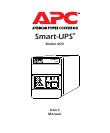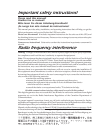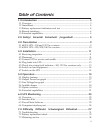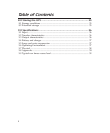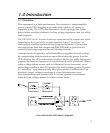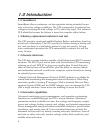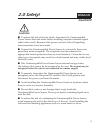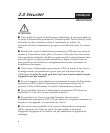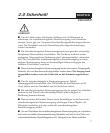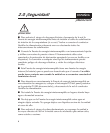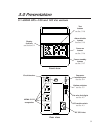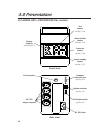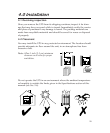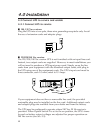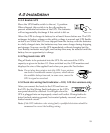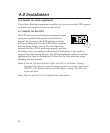
4
1.2 SmartBoost
SmartBoost allows continuous, on-line operation during extended brown-
outs or low line voltage conditions. The UPS compensates for reduced line
voltage by boosting the load voltage to 12% above the input. This enhances
UPS reliability because the battery is saved for complete utility failure.
1.3 Battery replacement indicators and test
The UPS provides visual and audible Replace Battery indications, based on
a load test of the battery. The UPS exercises its battery during a startup self-
test, and can detect a weak battery before it is put into service. In long-
term, unattended operation the UPS automatically conducts this self test
every 14 days.
1.4 Remote interfaces
The UPS has a remote interface capable of full bidirectional RS-232 commu-
nications. The RS-232 port can be used with PowerDoctor UPS monitoring
software on a local DOS PC to log power quality data. PowerChute plus
offers all the features of PowerDoctor, plus the ability to execute orderly
and unattended network or multi-user computer system shutdowns during
an extended power outage.
A Simple Network Management Protocol (SNMP) adapter is available for
remote load monitoring and management across Ethernet or Token Ring
networks capable of routing IP messages. With a standard Network Man-
agement System (NMS) and the SNMP Adapter, you can manage the UPS
with a single interface—from across the building or across the world.
1.5 Extended capabilities
Advanced monitoring, power management, and operation customizing
functions are available through the UPS’s remote interface. Monitored
parameters include available run time, line voltage and frequency, output
power and voltage, battery capacity and voltage, and internal temperature.
Power management functions include scheduled shutdown, power failure
simulation, and remote turn off. User customized functions include the
automatic self-test and low-battery warning intervals; shutdown, turn-off
and turn-on delay intervals; transfer voltage; utility-fault sensitivity; and
audible alarm activation.
1.0 Introduction



